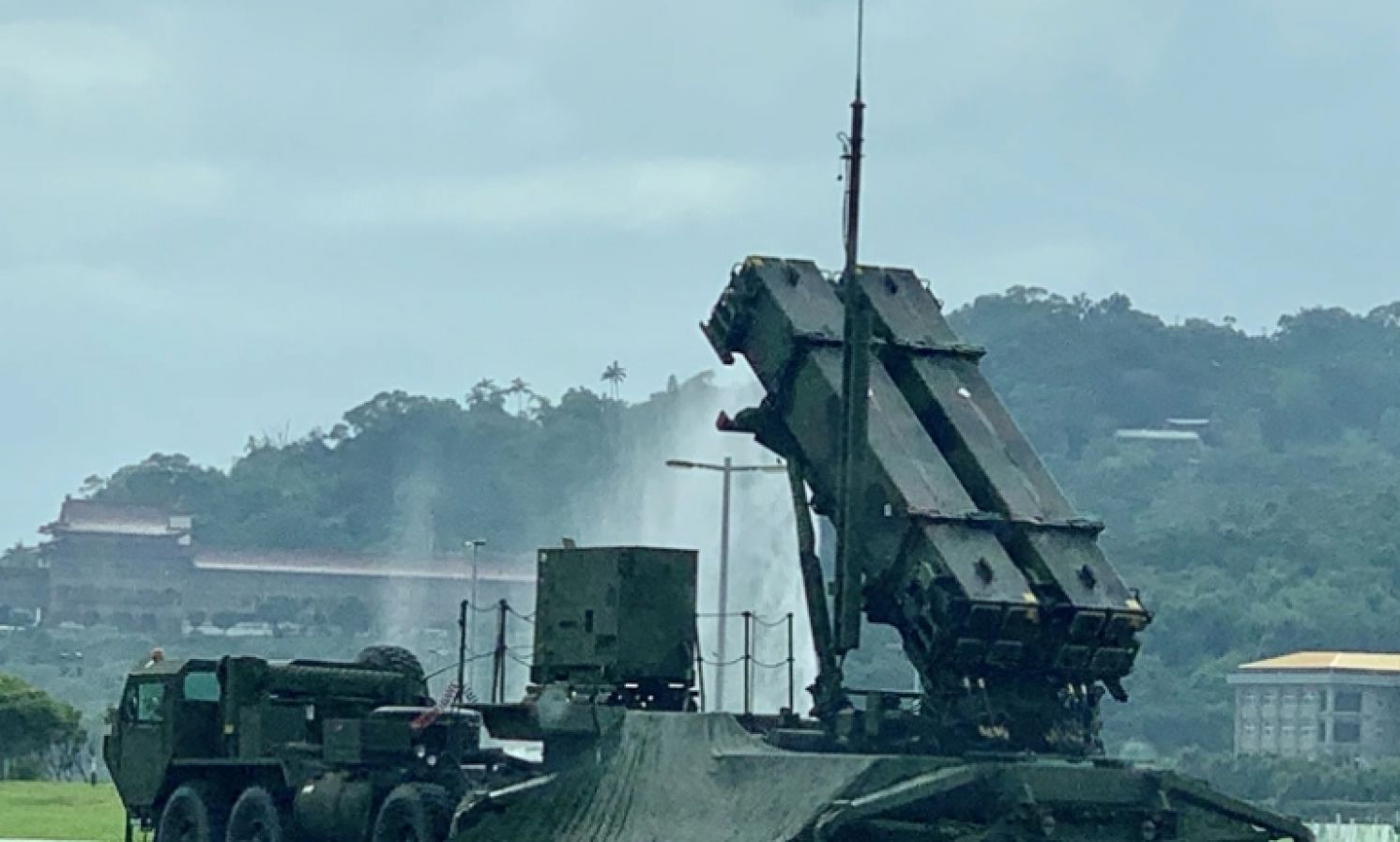
This Week in Taiwan 0423-0429
April 23: Minister of National Defense Chiu Kuo-cheng once publicly stated that Taiwan is negotiating with the United States which intends to transfer its arms inventory in East Asia to Taiwan. The prospect has generated discussions by observers. The Ministry of National Defense (MND) stated that the purpose is to establish a "regional emergency stockpile" for Taiwan's defense needs rather than pre-stock ammunition in Taiwan. The MND is continuing to discuss four issues with the United States, including the definition of emergency, type of ammunition that can be immediately operated by the Armed Forces, transportation, and material transfer time.
April 24: The National Police Administration (NPA), Ministry of the Interior, is rumored to expand the Second Special Police Corps into a "Second Army," although Minister Lin You-chang denied that future police training will be militarized. However, opposition party legislators disclosed that the NPA has sent letters to local police departments, recruiting tactical and seed instructors, and will train 5,500 police officers to improve the ability of police officers to transition from normal operation to combat mode. The content of training courses planned by the NPA include weapon training, live grenade throwing, and small army battles.
April 24: The Investigation Bureau of the Ministry of Justice caught fire in the middle of the night. The source of the fire was the Office of Cybersecurity, which is responsible for preventing spread of false information and business hacking by foreign hostile forces, generating scrutiny. But Director-General Tsai Ming-yen of the National Security Bureau (NSB) stated that initial investigation did not show signs of arson, and the office where the incident occurred is not involved in relatively sensitive information.
April 26: During interpellation at the Legislative Yuan, Director-General Tsai Ming-yen of the NSB confirmed for the first time that Taiwan and the Five Eyes intelligence alliance, comprising Australia, Canada, New Zealand, the United Kingdom, and the United States, has been able to exchange intelligence in real time and has updated information equipment to share intelligence information with the Alliance.
April 26: Former President Ma Ying-jeou went to Greece to participate in the Delphi Economic Forum. The organizer changed Mr. Ma's title several times, including "Former President of Taipei" and “Former President of Kuomintang-Chinese Taipei," causing controversy. At the opening ceremony, Ma reported the problem to President Katerina Sakellaropoulou of Greece and Symeon Tsomokos, founder of the Delphi Economic Forum. The Greek president apologized and asked the organizer to correct the title. The Ministry of Foreign Affairs stated that the status of the Republic of China (Taiwan) as a sovereign and independent state should not be undermined and condemned the Forum in the strongest terms.
April 28: The Directorate-General of Budget, Accounting and Statistics (DGBAS), Executive Yuan, announced that the gross domestic product (GDP) growth rate in the first quarter was -3.02 percent, a new low in nearly 14 years. If the forecast for the second, third, and fourth quarters remain unchanged, it may drag down the downward revision of this year's GDP to 1.67 percent.
Taiwan is facing geo-political risks and uncertainties in the global economy, and business investment has become more conservative. The DGBAS predicts that the amount of private fixed investment this year is estimated at NT$5.3 trillion (about US$172 billion), with a real growth rate of -1.13 percent, the first time in the past six years that negative growth was observed.
The National Development Council (NDC) released its business climate comprehensive judgment score of 11 points for March, colored light blue, continuing a streak of five consecutive blues. The NDC originally estimated that the economy would bottom out in April, but now it has changed its view, believing that recovery will likely occur in the third quarter.
April 28: The Taiwan Affairs offices of the Communist Party and the State Council and the Association for Relations Across the Taiwan Straits held a symposium in Beijing commemorating the 30th anniversary of the Wang-Koo talks. Director Song Tao of the Taiwan Affairs Council of the State Council stated that the Wang-Koo talks highlight the importance of the "1992 Consensus" as the basis for cross-strait negotiations. As long as the Taiwan authorities agree with the 1992 Consensus which embodies the "One China" principle, cross-strait negotiations can be resumed, and issues of concern to Taiwan compatriots can be properly resolved.
April 28: The Ministry of National Defense released information on disturbance by People's Liberation Army (PLA) aircraft and warships. One TB-001 un-manned aerial vehicle entered Taiwan's southwest airspace on April 27 and circled Taiwan. Scholars opined that the PLA used this to demonstrate its long-distance flight capabilities of drones at sea. In the future, it is likely to send drones to conduct reconnaissance in Taiwan's Eastern combat reserve area so as to advance the PLA's sea and air forces in the Western Pacific.